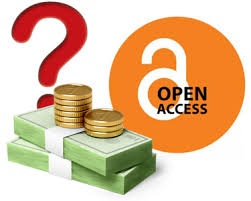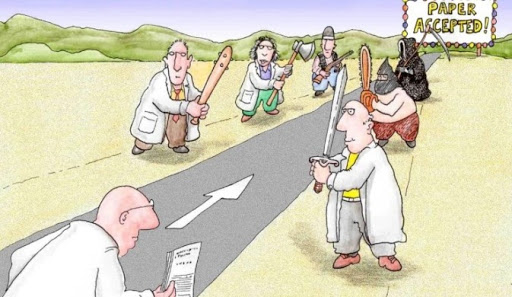Author: Ignacio Aguaded – Translation: Erika-Lucia Gonzalez-Carrion
In the world of scientific publications, as in all areas of life, there are more or less permanent debates that in many cases arise and respond to sterile and unfocused discussions. One of them, no doubt, is the diatribe if researchers and authors must pay to publish, because many scientific journals, especially those with a better position in JCR and Scopus, require an APC (fee for publication), once the work is accepted, sometimes of significant economic amounts.

The debate is undoubtedly, in many cases, poorly formulated. The first premise that must be made clear is that the author, from his or her personal payroll, is neither ethical nor justifiable to pay publication fees for an activity that is the result of his or her professional practice and that his or her own company (university, research center, institution…) must support, since the credits for this activity always appear together with the authorship, generating revenues of national and international recognition and prestige.
Secondly, there is no point in tearing one’s clothes off because private companies, which carry out the editing work as just another commercial activity, charge for the services they provide, confusing the prior preparation of the author’s research work with the editing and dissemination work carried out by the magazines with their teams. If all the basic goods have a cost, obviously this type of publishing activity also has a cost, with variable amounts depending on the game of the market and the prestige and indexation of the scientific journals.

Confusing the «open access» movement with payment for publishing is a serious error, as well as being settled as artificial. Open science advocates that research works, which have been supported with public funds, should also be, in their final phase of publication, accessible manuscripts for the scientific community, so that they generate visibility and revert to the social interest. Guaranteeing this final accessibility is also linked to financial support. If we publish in journals supported by public funds or non-profit organizations, the editing processes will be free for the authors and will not count with fees for the readers, since the previous financing logically satisfies it. On the other hand, in the case of private publishing companies, we have been migrating from reader payment (via subscriptions or direct purchases) to author payment (APCs), as a way of financing the publishing companies, or even with mixed formulas.
Open science promotes that all works financed with public funds are open, for this reason it is necessary to improve the quality and prestige of the public publishing network, maintaining with funds from all exclusively those publications of high quality and scientific rigor. Meanwhile, it is also necessary that regular support measures are established for researchers so that they can «unload» their works in prestigious private journals with public funds, to guarantee this double principle which is not incompatible: the best and highest dissemination of quality research and the publication in journals of maximum prestige, visibility and impact, in case these are from commercial entities.
Open science is the model and aspiration of all, because as a basic good that ensures the development of peoples, it cannot be subject to the arbitrages of the market. For this, excellent researchers must have worthy resources for research and consequently all the support for its dissemination and visibility. Researching and publishing has a high cost and it is clear that in no case should it come out of the researchers’ pockets since it is part of their work.
The debate about paying or not paying to publish is sterile and partial. The background is not only the final phase of editing, but all the overall support that research must have from its inception, until its dissemination by the scientific community.
The editorial fabric for science is the one that must be questioned and rethought. Why haven’t the public editorial services been able to absorb and edit the best papers of research results, quality science, counting on everyone’s resources? This is the dilemma we must face: Why do organizations such as the FECYT in Spain, and similar in other countries, not promote and finance journals of proven quality and indexing of excellence, published by non-profit companies and public/private universities, to promote true open science?
To tear one’s clothes off in the myopic debate of paying or not paying to publish is to see a single drop in a very wide universe, but not for that reason unattainable.
